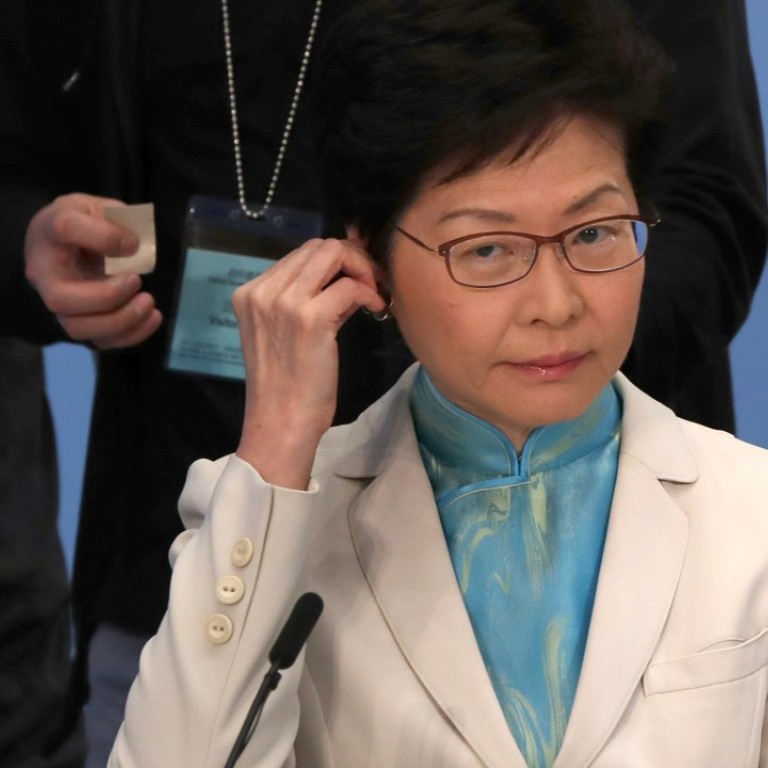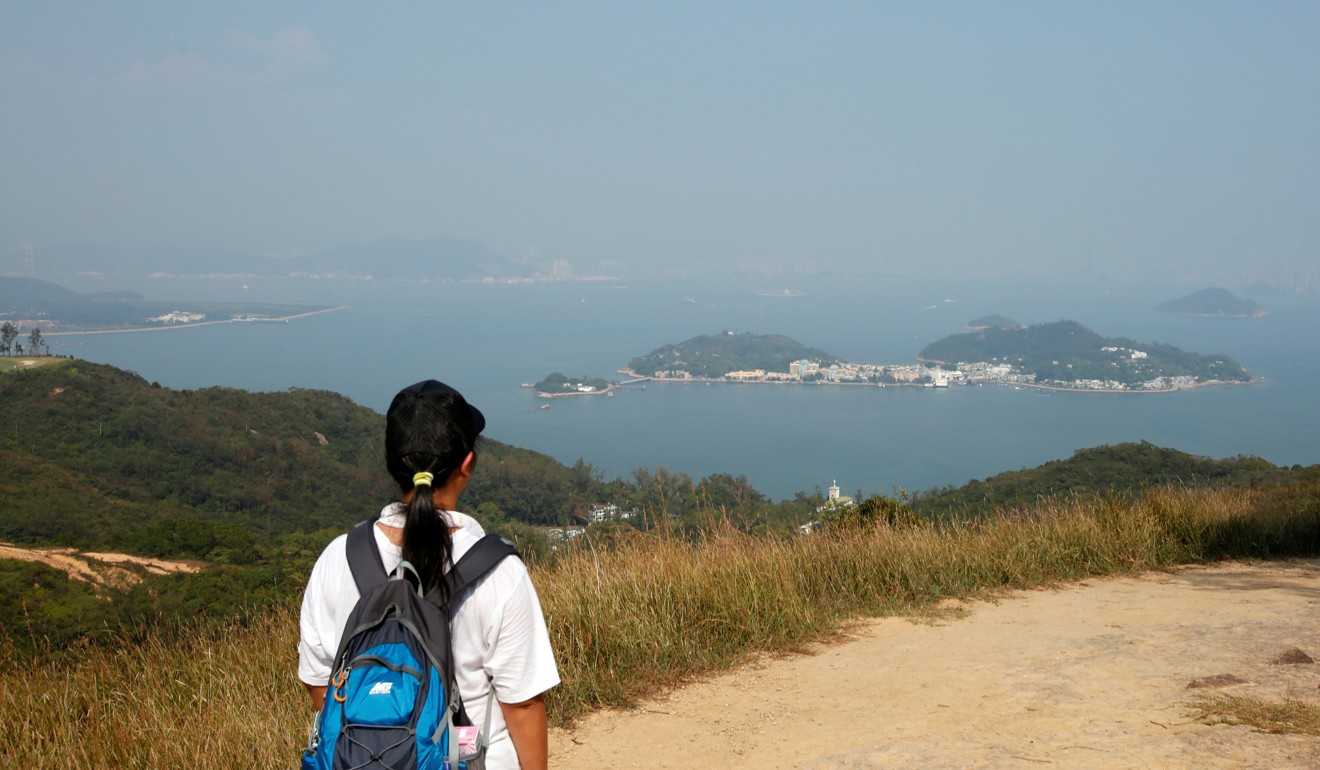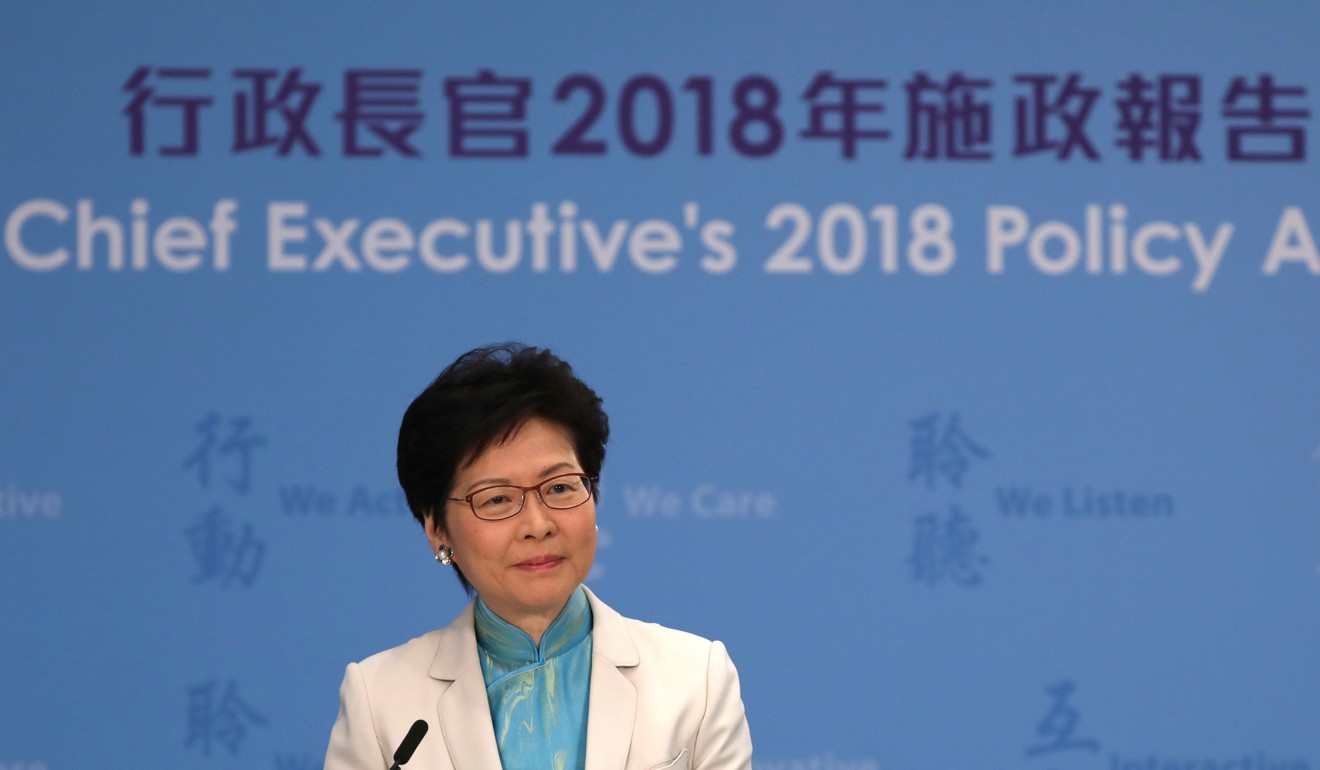
Hong Kong’s leader Carrie Lam says tough decisions had to be taken and urges residents not to ‘demonise’ reclamation
Lam defends her HK$500 billion proposal to create new metropolis spanning about 1,700 hectares on artificial islands, and tells Hongkongers not to ‘demonise’ reclamation
“[Dissatisfaction] was expected,” Lam said on a morning radio show. “But I can say seriously that … it needs long-term planning to deal with major issues. If I did not raise them in my second address, they would be unlikely to be done in my term.”

The mega project, which involves creating a group of artificial islands totalling 1,700 hectares to ultimately house more than a million people, has been heavily criticised over its cost – which would amount to half the city’s fiscal reserves – and its environmental impact, as well as being too time-consuming to solve the city’s housing crisis.
“In recent years, people have demonised reclamation so much,” Lam said during a question-and-answer session with lawmakers.
“Hong Kong has been relying on reclamation since the beginning. I grew up on Gloucester Road, and witnessed reclamation extending further and further from the road.”
The massive undertaking is part of Lam’s “Lantau Tomorrow Vision” to develop Hong Kong’s biggest island and its surrounding areas, creating the city’s third housing and business centre in the process – the first two being Central and Kowloon East.
Lam shows policy address does not have to be a popularity contest
In a survey by the University of Hong Kong’s public opinion programme on Wednesday, 33 per cent of respondents were satisfied with the policy address, down from last year’s 48 per cent, while 34 per cent were not, compared with 14 per cent last year.
“The policy address included many initiatives, many of which were contentious,” Lam said. “You can imagine that just one policy initiative could anger 10 per cent of the people.”
During the Thursday session, lawmakers from both pan-democratic and pro-establishment camps grilled Lam over the Lantau project.
Civic Party lawmaker Kwok Ka-ki accused Lam of “pouring money into the sea” by choosing the most expensive land supply option.

“People have been saying it’s not ‘Lantau Tomorrow’ but ‘bad luck tomorrow’,” Kwok said.
Gary Fan Kwok-wai, of the NeoDemocrats, said Lam had failed to rekindle hope as promised in her policy address, but had “set fire to the public coffers”.
Aron Kwok Wai-keung, of the pro-establishment Federation of Trade Unions, questioned why Lam had not proposed short-term housing solutions, such as repurposing a 170-hectare golf course in Fanling to build flats.
Lam responded by comparing her vision to the British colonial government’s port and airport development strategy of the late 1980s, dubbed the “Rose Garden Project”.
“The scale of the Rose Garden Project happened to be over 1,700 hectares,” she said. “If the government at that time did not have the resolution to carry out the project, what would Hong Kong be like today?”
Lam declined to confirm the predicted cost of the new reclamation project, but admitted it would be a “massive investment”.
However, she pointed out that the money would be spent over two decades, and annual expenditure on infrastructure was already about HK$100 billion currently.
Lam argued that she had proposed short-term solutions such as the unprecedented move to allow industrial buildings to be converted into transitional housing, but she admitted the government was unsure about the effectiveness of the policy.
She said developing existing land resources, such as the golf course, would not be as fast as people expected, because it involved widening roads to ease traffic congestion, and relocating ancient graves and old trees.
I won’t change tunnel tolls plan, Carrie Lam says
Careful study and new reclamation technology would mitigate any potential environmental impact, she added.
On the radio programme earlier, one caller questioned the motive behind the Lantau development, saying the number of people it could accommodate coincided with the number of new immigrants so far, through a scheme allowing up to 150 people from mainland China to settle in Hong Kong every day.
Lam said the scheme was for mainlanders to reunite with their families.
“Why do we have to keep them out? For housing on reclaimed land, priority will be given to residents who have lived in Hong Kong for a long time,” she said.
In April, the government-appointed Task Force on Land Supply launched a public consultation to source more land, with reclaiming 1,000 hectares of land to the east of Lantau being one of 18 possible options.
Policy address brings good news for working mothers and house-hunters
But Our Hong Kong Foundation, a think tank chaired by former chief executive Tung Chee-hwa, counter-proposed in August that 2,200 hectares should be reclaimed in the area.
Lam dismissed the suggestion that she came up with the 1,700-hectare plan after reading the foundation’s proposal, attributing the similarity between the plans to both groups consulting professional engineers.
The task force will make its report public at the end of the year, although Lam has been accused of pre-empting it. She argued that the government had been consulting the public on reclaiming land to the east of Lantau since 2011, and had gained public support.
It was now time to get moving on it, she said.
Lam said a final decision was still pending, and the plan could be adjusted or amended after future public consultation, and lobbying in the legislature.


